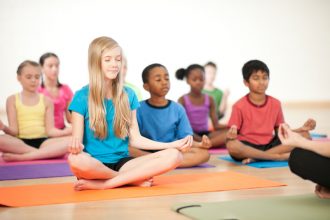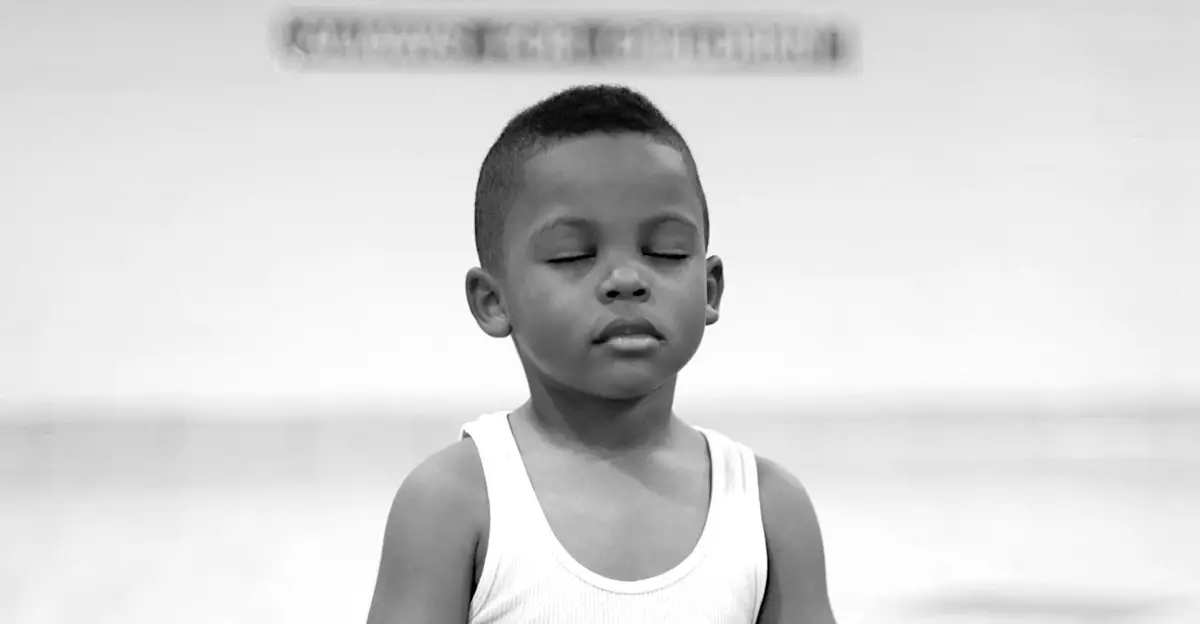Contributing writer for Wake Up World
Back in the 70s, during my grammar school years, I vividly remember a disturbing incident. I was in the school office when I heard the male principal screaming at a student behind a closed door. I don’t know what the student had done to be on the receiving end of such a rant, but I do remember my heart racing and a feeling of terror that the anger would somehow be turned toward me. Needless to say, I high-tailed it out of that office as quickly as possible, relieved to have escaped. The thing is, this scenario was considered utterly ‘normal’. Thankfully, corporeal punishment wasn’t practiced in my school, which would have been far more terrifying.
Unfortunately, many students can relate to this story today. Corporeal punishment is alive and well in 19 states throughout America, with many schools resorting to increasingly harsh measures to deal with unruly students. But studies have shown, time and again, that verbal and physical punishment simply don’t work — both actually cause more behavioral problems in the long-run. There has to be a better way — and a Baltimore-based organization thinks it’s found the answer: empowering communities and schools through yoga, mindfulness and self-care practices.
Changing Young Lives for the Better with Mindfulness Practices
“Imagine this… instead of sending your children to their room kicking and screaming, taking away their iPad for a week, or giving them a time-out in the corner, you ask them to spend a few minutes alone to meditate and work through the anger, frustration, stress, or other emotions causing them to act out.
“This new form of discipline is now a huge success at several schools, and those schools are seeing some major changes among students.”
~ Sandi Schwartz in “Can Teaching Kids Mindfulness Replace Discipline?”
Robert W. Coleman Elementary School in Baltimore, United States, doesn’t have a detention room or an active punishment policy for disruptive kids. Instead, there is a Mindful Moment room, where students are encouraged to participate breathing practices or meditation to “calm down and re-center.” They are also given the opportunity to talk through what happened with specially trained aides.
Created in partnership with the Holistic Life Foundation, a local nonprofit organization that focuses on nurturing wellness of children and adults in underserved communities, the Mindful Moment room has significantly helped reduce the rate of suspensions — with exactly zero in 2015, and none so far this year. For over ten years, the foundation has also run the Holistic Me program, which offers after-school mindfulness and yoga classes for kids from pre-kindergarten through the fifth grade.
The Mindful Moment room is filled with lamps, plush pillows and bean bags — a far cry from the usual bleak, windowless detention rooms of the past. Essentially, it’s a space where students are safe and supported as they learn deep breathing exercises, meditation and mindfulness techniques.
“It’s amazing,” said Kirk Philips, the Holistic Me coordinator at Robert W. Coleman. “You wouldn’t think that little kids would meditate in silence. And they do.” [source]
Not only are suspensions now nonexistent, but students themselves are recognizing the benefits of the program.
“Before a big exam, one 5th grader talks of using breathing techniques: ”I took deep breaths to stay calm and just finish the test. When everybody around you is making a lot of noises just trying to tune them out… and be yourself, do your breathing.” [source]
Another student used the exercises he learned through the school program when he was angry at home.
“This morning I got mad at my Dad, but then I remembered to breathe and then I didn’t shout.” [source]
Andres Gonzales, co-founder of Holistic Life Foundation, adds:
“We’ve had parents tell us, ‘I came home the other day stressed out, and my daughter said, “Hey, Mom, you need to sit down. I need to teach you how to breathe”.’ [source]
The foundation also tutors and mentors the kids, along with educating them about the environment. Students are involved in cleaning up nearby parks, creating gardens and visiting local farms. They also train kids to help run yoga sessions as co-teachers.
Whichever way we look at these programs of mindfulness, yoga and empowerment, they’re nothing less than a win-win — for the students, school and community as a whole. Learn more about bringing similar, life-changing practices to your neighborhood here.
Article sources:
- www.hlfinc.org
- www.parent.co/can-teaching-kids-mindfulness-replace-discipline/
- www.upworthy.com/this-school-replaced-detention-with-meditation-the-results-are-stunning
- www.mymodernmet.com/profiles/blogs/meditation-detention-holistic-life-foundation
- www.huffingtonpost.ca/2016/09/27/school-meditation_n_12215382.html
- www.syracuse.com/schools/index.ssf/2016/09/schools_turn_to_yoga_meditation_instead_of_detention_suspension.html
About the author:
 Carolanne Wright enthusiastically believes if we want to see change in the world, we need to be the change. As a nutritionist, natural foods chef and wellness coach, Carolanne has encouraged others to embrace a healthy lifestyle of organic living, gratefulness and joyful orientation for over 13 years.
Carolanne Wright enthusiastically believes if we want to see change in the world, we need to be the change. As a nutritionist, natural foods chef and wellness coach, Carolanne has encouraged others to embrace a healthy lifestyle of organic living, gratefulness and joyful orientation for over 13 years.
Through her website Thrive-Living.net, she looks forward to connecting with other like-minded people from around the world who share a similar vision. You can also follow Carolanne on Facebook, Twitter and Pinterest.
Recommended articles by Carolanne Wright:
- Renowned Harvard Psychologist Says ADHD is Largely a Fraud
- Antibiotics Shown to Impair Memory, Stop Growth of New Brain Cells
- Plastic Waste in the Ocean Will Outnumber Fish by 2050
- Mind Control, Subliminal Messages and the Brainwashing of America
- Plastic-Eating Mushroom Discovered in the Amazon Rainforest — A Solution for Our Trash Saturated World?
- Over 100 Scientific Studies Agree: Cannabis Annihilates Cancer
- Why Every Parent Should Consider Unschooling
- First U.S. City Produces More Electricity Than It Uses — With 100% Renewable Technology
- If You Care About Animals and the Earth, Here’s Why You Need to Boycott Palm Oil Immediately
- Basic Income Guarantee: A Surprisingly Cost-Effective Method for Eliminating Poverty
- A New Take on Sewage: How to Harness the Superpowers of Pee and Poo for Better Ecological and Human Health

If you've ever found value in our articles, we'd greatly appreciate your support by purchasing Mindful Meditation Techniques for Kids - A Practical Guide for Adults to Empower Kids with the Gift of Inner Peace and Resilience for Life.
In the spirit of mindfulness, we encourage you to choose the paperback version. Delve into its pages away from screen glare and notifications, allowing yourself to fully immerse in the transformative practices within. The physical book enriches the learning process and serves as a tangible commitment to mindfulness, easily shared among family and friends.
Over the past few years, Wake Up World has faced significant online censorship, impacting our financial ability to stay online. Instead of soliciting donations, we're exploring win-win solutions with our readers to remain financially viable. Moving into book publishing, we hope to secure ongoing funds to continue our mission. With over 8,500 articles published in the past 13 years, we are committed to keeping our content free and accessible to everyone, without resorting to a paywall.








